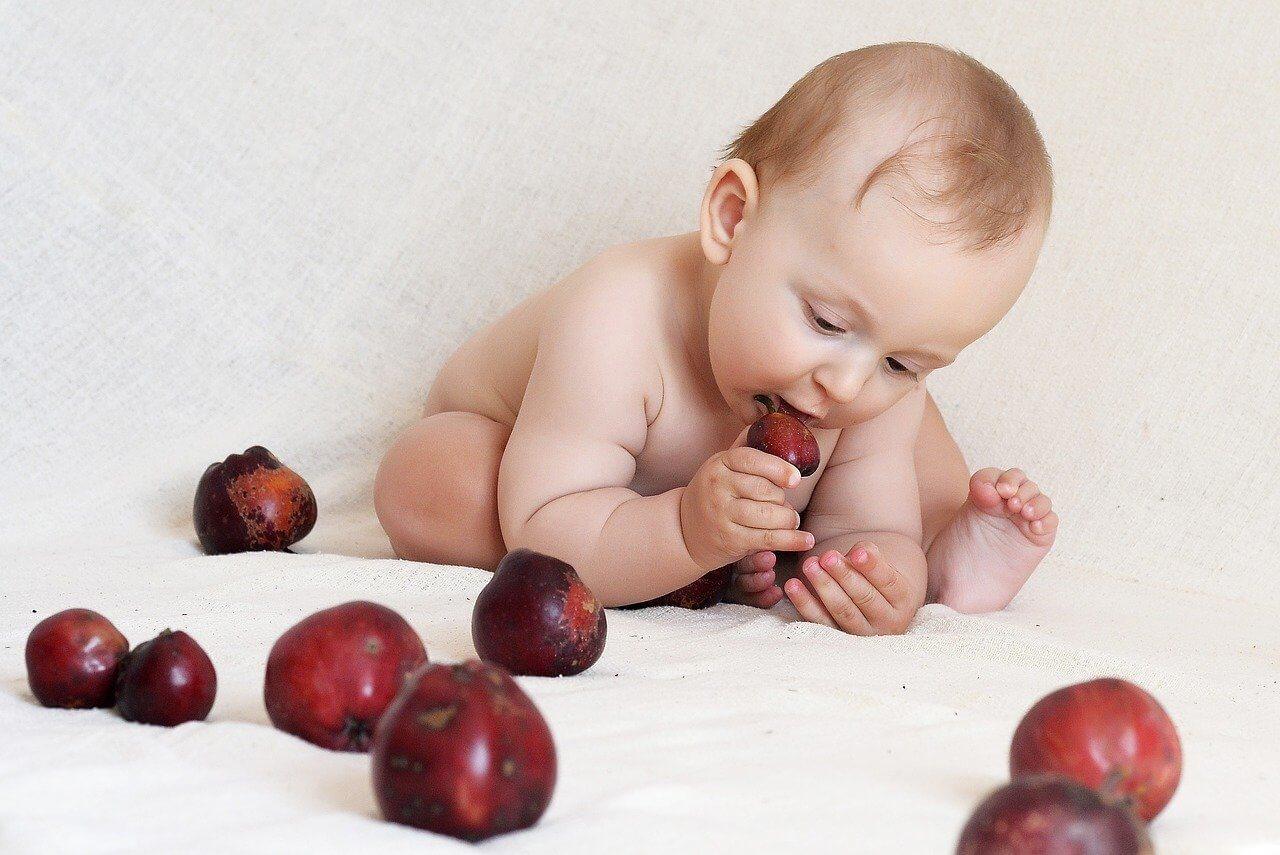Many worrying questions cross parents' minds when they think about how to introduce solid foods into their baby's body.
Is he ready?
Will he hate it?
What if he has an allergic reaction?
Sarah Pyrot was most concerned about how much food her then four-and-a-half-month-old son Victor liked to eat. "He was eating at breakneck speed," she said. "I was afraid we would have to try a few times, or he would push his food, but he gobbled it up." While Sarah was happy that Victor was an avid eater, she was worried about the risk of choking. "In fact, my son was more comfortable than me with solid food."
Teaching your little one to eat solid foods can be both exciting and daunting, but feeling confident and prepared can help take some of the anxiety out of those first meals.
Here's what you need to know:
When can I give solid foods to my baby?
If your baby seems more interested in your morning croissant than her bottle, she may be trying to tell you she's ready to try solid foods. Usually, the sweet spot is around 5 months , plus or minus a month, depending on the child. After 6 months, babies need some important nutrients from solid foods, so waiting past 6 months is too late.
Physically, your baby should be able to sit up on her own and control her neck muscles before you offer her solid foods. And don't forget that he may gag at first. That's partly because he's never had solids before. It's a normal part of learning to eat.
A balanced diet - Food advice for your baby?
It is recommended to start with foods rich in iron , such as meat purees, eggs, lentils. Iron is an essential element for the development of the infant's brain and red blood cells. Iron-fortified cereals are still a great option. Otherwise, anything is possible. Children should be encouraged to eat a variety of foods from an early age. Brightly colored fruits and vegetables are the most nutritious foods and can have the added benefit of being visually appealing to your baby.
First foods can be pureed , very finely chopped, or in soft whole pieces (like a vegetable cut into a French fry stick that your baby can put applesauce on). Take it slow, as your baby becomes familiar with solid foods, you can gradually introduce new textures. Generally, at 9 to 12 months of age , you can start offering raw fruits and vegetables . Hard foods (carrot, apple) should be grated and soft foods (banana, avocado) cut into very small pieces. Take-out foods like shredded cheese, dry cereal, and small pieces of toast are also appropriate at this stage.
Should I be worried about my baby's food allergies?
It is recommended that you wait two days before offering each new food, especially those with a higher risk of allergy , such as peanut products, fish, dairy products or eggs, so that you can determine the cause of any reaction. If there is a strong family history of anaphylaxis or severe allergies , then obviously you need to be more careful.
But nothing really suggests there's any benefit to delaying the introduction of these foods, and there might even be benefits to introducing them earlier. Indeed, a recent study on how to introduce solid foods suggests that introducing peanut products to babies could prevent the development of peanut allergy.
Make meals fun
Starting to give your baby solid foods can be a very fun and rewarding learning experience . One of life's great pleasures, and one thing we know that contributes to good nutrition, is being able to share a meal with the family.
Foods not recommended for babies
Babies younger than 12 months should not be fed honey, due to the risk of infant botulism . You should also avoid choking hazards like whole nuts, raisins, popcorn, and raisins.
And you, how did you do the first time you gave your baby solid food?
Do not hesitate to share your experience in the comments below, it would make us very happy.










